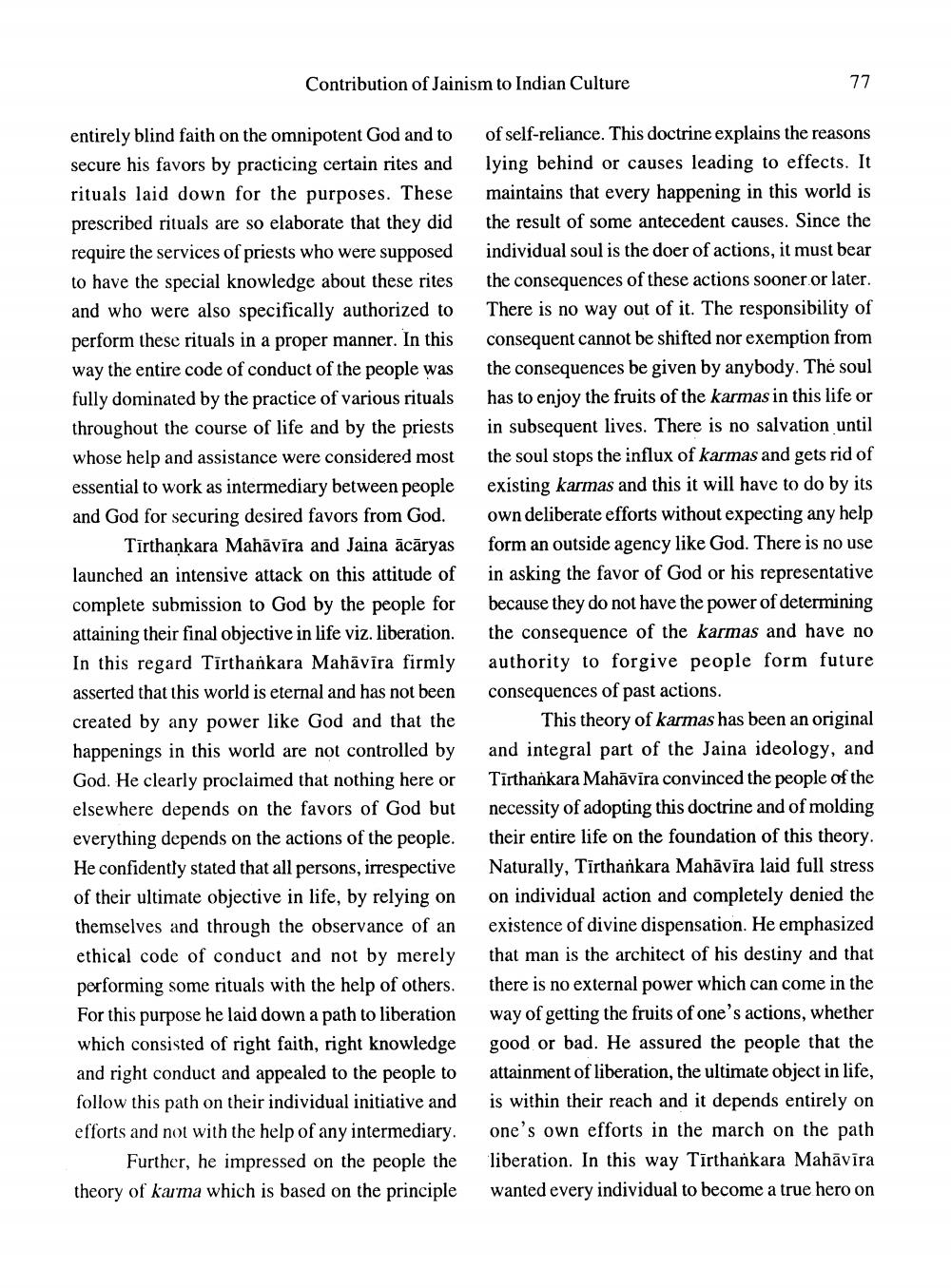________________
Contribution of Jainism to Indian Culture
77
entirely blind faith on the omnipotent God and to secure his favors by practicing certain rites and rituals laid down for the purposes. These prescribed rituals are so elaborate that they did require the services of priests who were supposed to have the special knowledge about these rites and who were also specifically authorized to perform these rituals in a proper manner. In this way the entire code of conduct of the people was fully dominated by the practice of various rituals throughout the course of life and by the priests whose help and assistance were considered most essential to work as intermediary between people and God for securing desired favors from God.
Tīrthankara Mahāvīra and Jaina ācāryas launched an intensive attack on this attitude of complete submission to God by the people for attaining their final objective in life viz. liberation In this regard Tirthankara Mahävīra firmly asserted that this world is eternal and has not been created by any power like God and that the happenings in this world are not controlled by God. He clearly proclaimed that nothing here or elsewhere depends on the favors of God but everything depends on the actions of the people. He confidently stated that all persons, irrespective of their ultimate objective in life, by relying on themselves and through the observance of an ethical code of conduct and not by merely performing some rituals with the help of others. For this purpose he laid down a path to liberation which consisted of right faith, right knowledge and right conduct and appealed to the people to follow this path on their individual initiative and efforts and not with the help of any intermediary.
Further, he impressed on the people the theory of karma which is based on the principle
of self-reliance. This doctrine explains the reasons lying behind or causes leading to effects. It maintains that every happening in this world is the result of some antecedent causes. Since the individual soul is the doer of actions, it must bear the consequences of these actions sooner or later. There is no way out of it. The responsibility of consequent cannot be shifted nor exemption from the consequences be given by anybody. The soul has to enjoy the fruits of the karmas in this life or in subsequent lives. There is no salvation until the soul stops the influx of karmas and gets rid of existing karmas and this it will have to do by its own deliberate efforts without expecting any help form an outside agency like God. There is no use in asking the favor of God or his representative because they do not have the power of determining the consequence of the karmas and have no authority to forgive people form future consequences of past actions.
This theory of karmas has been an original and integral part of the Jaina ideology, and Tīrthankara Mahāvīra convinced the people of the necessity of adopting this doctrine and of molding their entire life on the foundation of this theory. Naturally, Tīrthankara Mahāvīra laid full stress on individual action and completely denied the existence of divine dispensation. He emphasized that man is the architect of his destiny and that there is no external power which can come in the way of getting the fruits of one's actions, whether good or bad. He assured the people that the attainment of liberation, the ultimate object in life, is within their reach and it depends entirely on one's own efforts in the march on the path liberation. In this way Tirthankara Mahāvīra wanted every individual to become a true hero on




